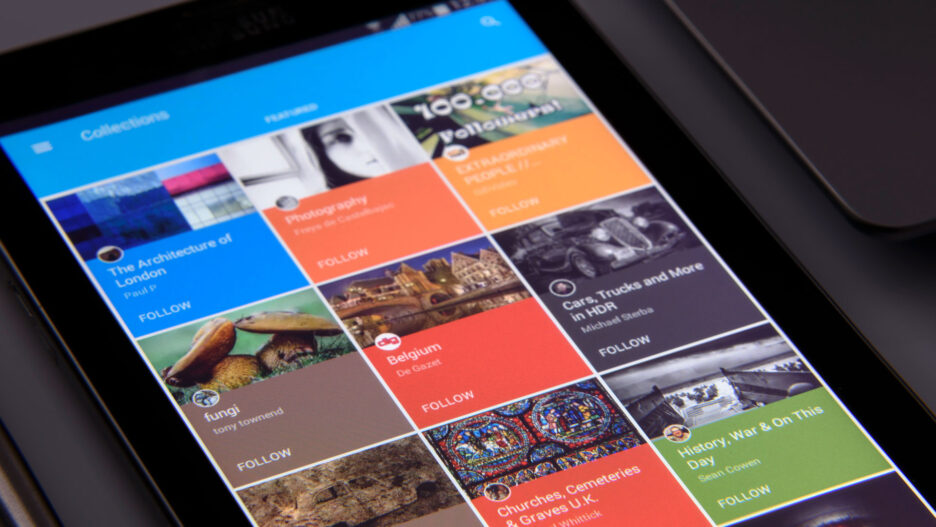Time and money… and again time and money… are two greatest resources that always seem to be not enough for every entrepreneur. You want to deliver your product as fast as possible and with minimum expenses. However, creating one and the same infrastructure every time for each new project is time-consuming, tiresome, and expensive. Luckily, IT industry works not only on products for the end-customer but also for the brother-developer. Today we’ll discover some useful tools for mobile backend development.
Mobile backend-as-a-service (MBaaS) is a cloud solution for developing mobile application backends. MBaaS can be regarded as a kind of PaaS that focuses on mobile applications. Due to such mobile platforms it possible to reduce the time and complexity required to build mobile applications so that developers can pay more attention to core features instead of configuring virtual machine or developing common functionality like user authentication or notifications.
MBaaS platforms typically include the following features:
Cloud-based data storage for mobile app;
Internet optimized data access;
Ability to automatic generate REST-based interfaces to read and write data;
Online/offline workflow;
Device Syncing and caching features;
Push notifications;
Integration with social networking sites (Facebook, Twitter, etc.);
User/security management tools;
Usage analytics.
While MBaaS market is still evolving it already is quite crowded. There exist couple dozen vendors that have entered the market and firmed their positions. Among the biggest MBaaS provides there can be named Appcelerator, Kinvey, Parse, PhoneGap, Kii Cloud, and OpenMobster. Let’s regard main features of these solution vendors.
Appcelerator
Is a privately held mobile technology company based in Mountain View, California. Its main products are Titanium and the Appcelerator Platform. Titanium is an open development platform for creating beautiful native mobile and desktop apps in JavaScript (including HTML + CSS). This mobile platform-as-a-service is designed for all types of mobile development including iOS, Android, and BlackBerry as well as hybrid and HTML5. It includes an open source SDK with over 5,000 device and mobile operating system APIs, Studio, a powerful Eclipse-based IDE, Alloy, MVC framework and Cloud Services for a ready-to-use mobile backend. The Appcelerator Platform is a cloud software suite that extends Titanium with features including a mobile backend as a service, test automation, debugging tools, an analytics and performance management suite, and a service level agreement.
Kinvey
Is one of the leading enterprise Backend as a Service platforms. Kinvey provides comprehensive support for native, hybrid, and mobile Web applications and delivers out of the box enterprise capabilities including identity management, integration with enterprise data sources and a data store and file store for new mobile data, ability to run customized business logic, and a rich set of mobile engagement services. Kinvey runs in a multi-tenant cloud or in a dedicated public or private cloud. Kinvey offers official support for Android and iOS, as well as for HTML5 apps. Customers that need support for other platforms like BlackBerry and Windows can use a set of open-source libraries. Moreover, company provides a good support for the developers who use tools like AngularJS, Backbone.js, PhoneGap, Node.js and Appcelerator’s Titanium. Kinvey can auto-scale and maintain your backend saving your time and money.
Parse
Was founded by a group of former Google employees and Y Combinator alums. Like similar platform-as-a-service offerings, it offers developers virtually all the tools necessary to build mobile apps without the need to manage their own servers, including storage, push notifications and analytics. Facebook acquired Parse almost exactly a year ago and recently announced that Parse pricing became cheaper, simpler, and pay-as-you-go.
Phonegap
Is a mobile development framework produced by Nitobi and purchased by Adobe Systems in 2011. It enables software programmers to build applications for mobile devices using JavaScript, HTML5, and CSS3. The main advantage of PhoneGap is that it supports a wide variety of platforms: iOS, Android, Windows 8, Windows Phone 7 and 8, BlackBerry 5.x+, WebOS, Symbian, and Tizen.
Kii Cloud
Is a complete backed platform provider that helps developers turn their ideas into global businesses. The platform works with Android, iOS, JavaScript, and Unity SDK operating systems. Kii comes out-of-the-box with all the backend building blocks including data and user management, push notifications, geo-location, social network integrations, analytics, and A/B testing services, so developers don’t have to provision those services individually from different providers. Kii successfully cooperates with Unity gaming engine providing all necessary game backend including tools, insights and a distribution package to help developers rapidly distribute their games.
OpenMobster
Is focused on mobility for Enterprise information systems. OpenMobster provides a bi-directional data synchronization service for mobile apps to synchronize their locally stored database with Enterprise services in the cloud such as server apps, CRM, ERP, etc. Apps can be fully functional even when the network is unavailable and the data on the device is always in sync with the data stored in the Enterprise systems. It supports a platform-agnostic cloud-initiated Push Notification System. Also the platform has framework for creating end-to-end Location Aware Apps. Supported platforms are Android and iOS.
***
Which platform to choose depends on your project requirements, features and APIs you need, and of course on your budget. Another factor you should keep in mind when evaluating potential MBaaS platforms for your project is ease of use. For example, Parse is relatively easy to get started with but it may have not enough APIs and other feature for your project. Pay attention to the quality of documentation the MBaaS platform goes with, it should be detailed enough and offer good instruction and support to help you start and manage your work with the platform. For example, if you’re looking for an MBaaS platform for enterprise mobile app development, then Kinvey or Accelerator is the right fit for you. If you are a game developer, then Kii Cloud may be a good choice. What would you choose?





